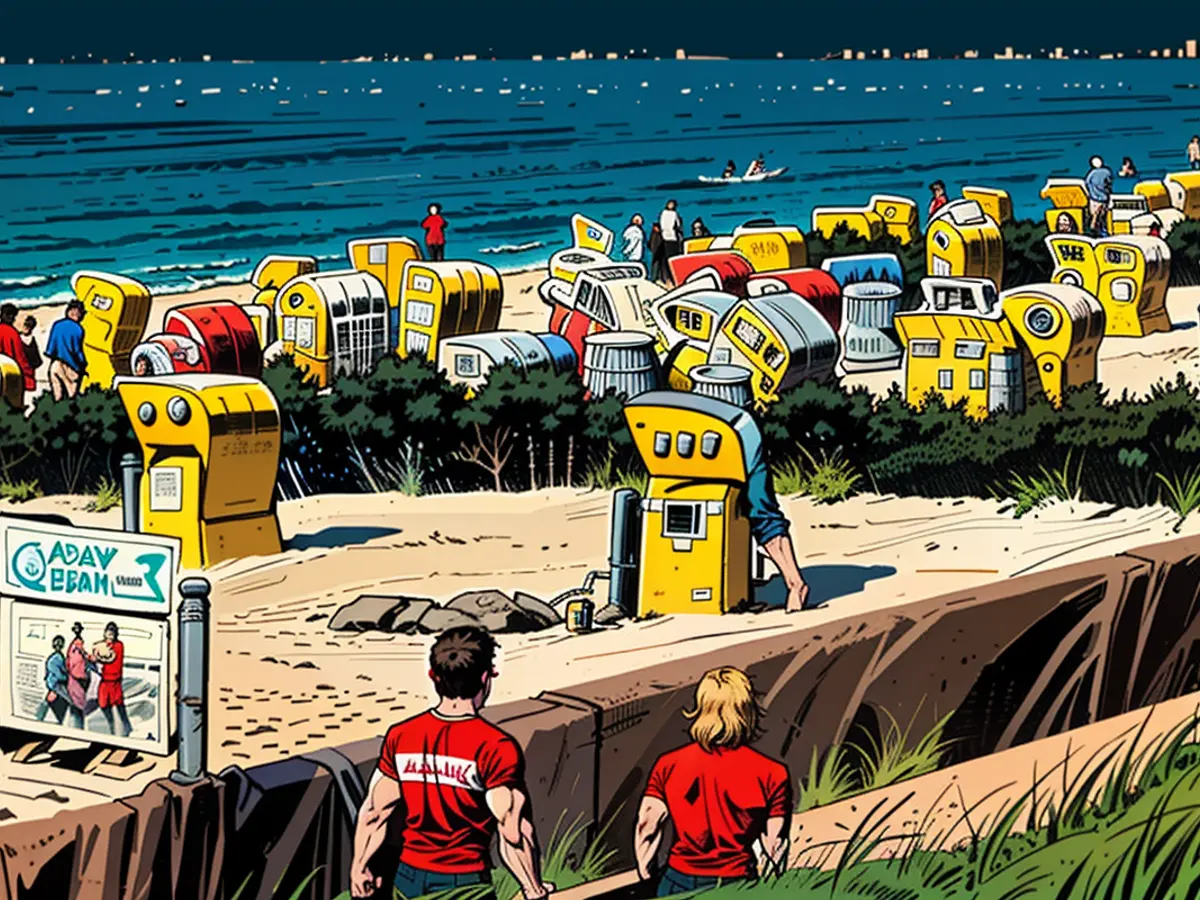- What is the use of guest contributions in Lower Saxony
In Lower Saxony, whether by the coast, on the islands, or in the Harz mountains, vacationers often have to pay a tourism fee. The prices vary depending on the destination, as shown by a survey by the German Press Agency. The range is from one to five euros. There are also differences in how the money is used.
In the Harz region, almost all places charge a guest tax year-round. The prices vary between one and 3.50 euros per day, depending on the location and season, according to Carola Schmidt, the managing director of the Harz Tourism Association. Reduced rates are available for children and, in some cases, business travelers or people with disabilities.
Many places are considering increasing the fee by 20 to 50 cents due to rising costs for maintaining tourist infrastructure. However, abolishing the guest tax in the Harz region is very unlikely. Without the fee, there wouldn't be enough money to finance the tourist infrastructure. In some places, the population nearly doubles during peak tourist seasons, and the infrastructure cannot be funded solely by local households.
The money is used differently in each place. Besides infrastructure, the fees go towards events or the Hatix visitor ticket. With this ticket, vacationers can use most Harz bus lines for free in exchange for the guest tax. This offer is unique in Lower Saxony, according to the passenger association Pro Bahn.
To levy a tourism fee, a place must be officially recognized as a spa, resort, or coastal bathing resort, either in whole or in part. This is according to the Lower Saxony Municipal Tax Act, which states that the money can only be spent on tourism. The situation is different with accommodation taxes, also known as bed taxes, which have been introduced in several Lower Saxon cities recently. They go into the general budget.
Prices on the coast have already increased. At some places on the North Sea coast, vacationers had to pay higher fees at the beginning of the year. On the East Frisian island of Borkum, for example, the distinction between peak and off-peak seasons has been abolished since January. The guest tax is now a uniform 4.80 euros per overnight stay for adults. Previously, overnight stays were cheaper during the off-peak season.
On the mainland, it has also become more expensive in some places. For example, on the Lower Saxon peninsula of Butjadingen, adults and children aged 13 and above will now pay 3.20 euros per overnight stay during the peak season from April to October, instead of the previous 2.90 euros. In the Frisian municipality of Wangerland north of Wilhelmshaven, the guest tax has also increased in Horumersiel, Schillig, and Hooksiel.
In the peak season, the current range in the region is between two euros (Hage in East Frisia) and five euros (Spiekeroog) for adults per night, according to the North Sea Tourism Agency. The money is used for public restrooms, supervised beaches, beach cleaning, park maintenance, events or concerts, playgrounds, and free public Wi-Fi.
In Cuxhaven, day visitors pay up to 3.90 euros for beach access during the peak season. Overnight guests pay ten cents less. The revenue helps fund beach and tidal flat rescue services, maintain and expand tourist facilities, and organize events, according to a city spokesperson. Payment compliance is high. "The increasing visitor numbers also show that guests are willing to pay these fees because they expect certain services in return," he emphasized.
In the spa town of Bad Bevensen in the Lüneburg Heath, hotels and pensions charge three euros per day directly. Additionally, businesses must also pay a percentage-based fee - up to small craft businesses. "All revenue goes towards tourist facilities like the spa park and spa house, as well as our event program," said Mayor Martin Feller. Financially, there is a large shortfall, partly due to many facilities like the thermal baths being closed during Corona.
Children in some locations may benefit from reduced guest taxes, as mentioned in the Harz Tourism Association's offer. The infrastructure necessitating these fees often struggles to be fully funded by local households alone during peak tourist seasons, resulting in a significant population increase.








